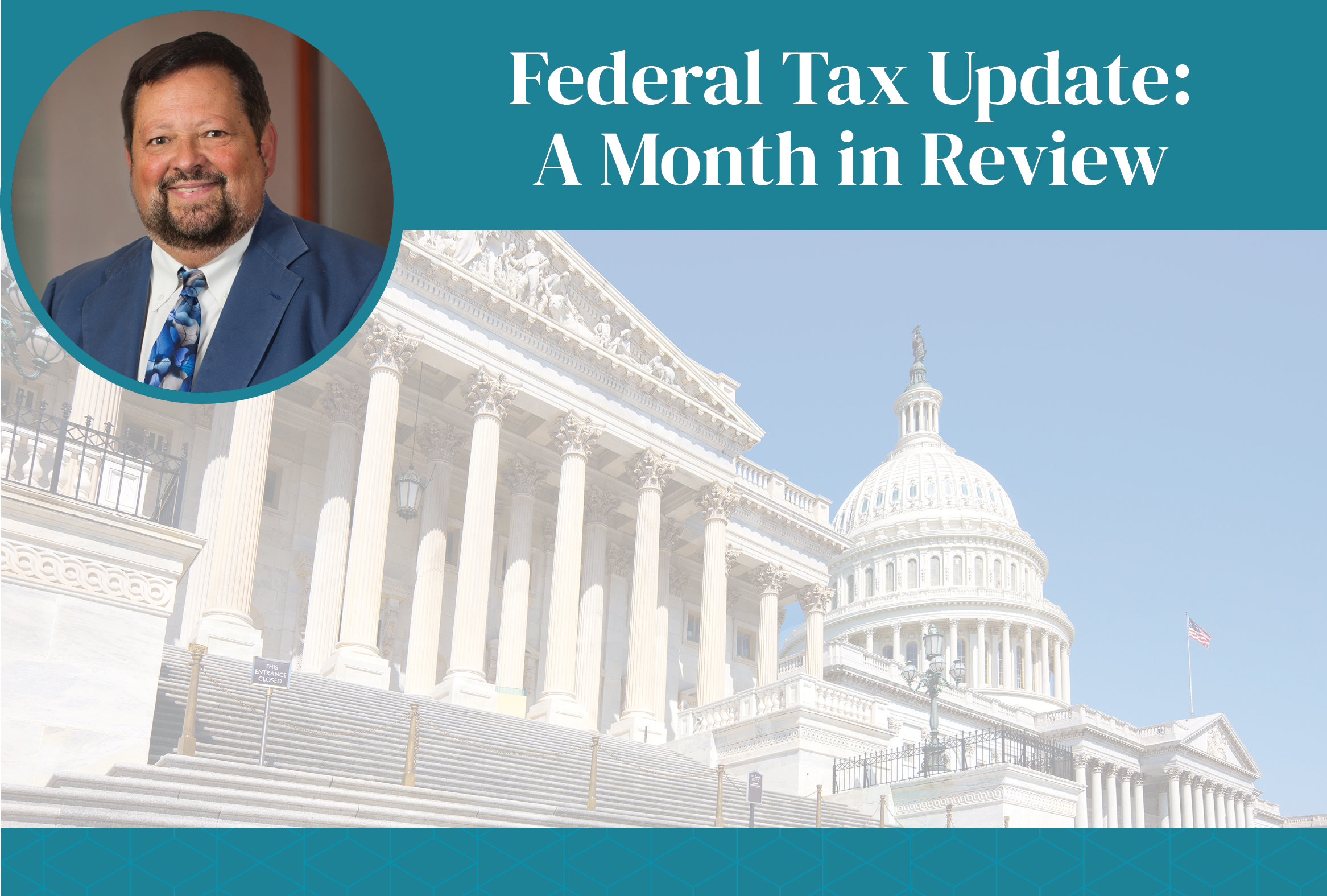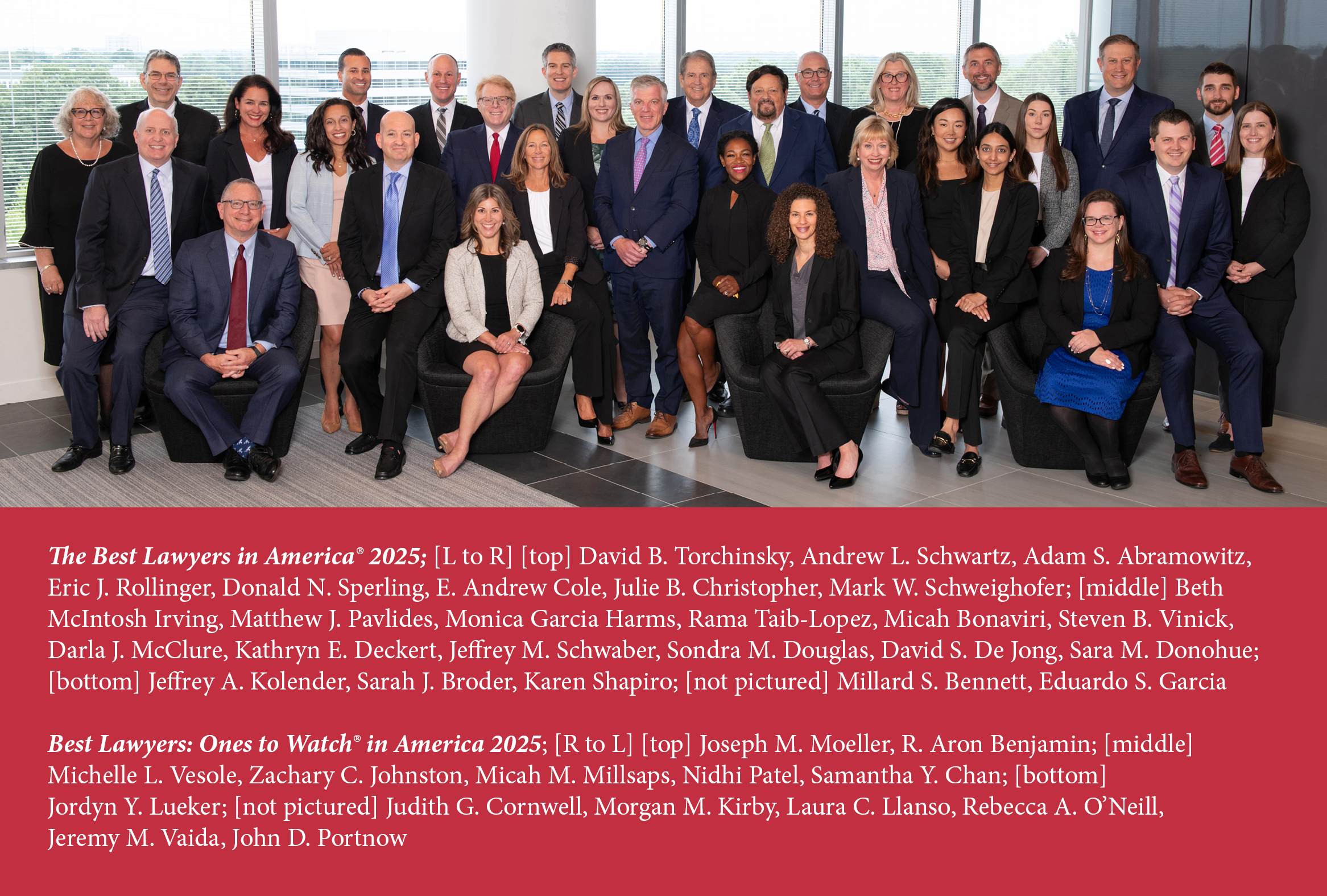August 1st, 2024
July Federal Tax Updates
Posted in: Tax Law Tagged: David S. De Jong

INDIVIDUALS
In Foradis v Commissioner, TC Summary Opinion 2024 – 13, the Tax Court concluded that a married couple who worked full time jobs were not real estate professionals as neither spent more time constructing a residence than working despite testimony of the husband that he spent about 48 hours per week in construction.
In Brooks v. Commissioner, 134 AFTR2d 2024-5070, the Fourth Circuit Court of Appeals agreed with the Tax Court in striking down a $5.1 million charitable deduction for a conservation easement little more than one year after twice the land that was donated was purchased for $1.35 million; the couple also failed to attach the required contemporaneous written acknowledgement of the organization to their tax return.
In Corning Point Ohio LLC v. Commissioner, TC Memo 2024-72, the Tax Court concluded that the value of the conservation easement related to a skyscraper in Cleveland was $900,000 and not the $22.6 million claimed, the judge calling this case an “urban version of the conservation easement title wave”; where the company acquired a vacant building and just over a year later claimed a deduction of 3 1/2 times the entire cost.
In Bachchan v. Commissioner, TC Summary Opinion 2024-14, the Tax Court agreed that IRS properly denied pre-2018 employee business expenses for an IT professional working at home but traveling through the NY Metropolitan area and his physician wife who was seeking employment, finding that neither adequately substantiated their expenses and also that the husband failed to establish that his expenses would not be reimbursed by the employer and that his home office was for the convenience of the employer.
In Bibeau v Commissioner, 134 AFTR 2d 2024 – 5114 the Eighth Circuit Court of Appeals agreed with the Tax Court that a member of the Chippewa tribe, an attorney, is not exempt from self-employment tax based on either the Indian Citizenship Act of 1924 or the treaties with the tribe, holding that Native Americans are subject to Federal tax laws unless a statute or a treaty specifically provides otherwise.
RETIREMENT AND ESTATE PLANNING
Final Regulations under Code Sections 401, 403 and 408 require minimum distributions of inherited retirement plan interests including IRAs annually during the ten year period following death where the decedent had reached the Required Beginning Date (RBD) but otherwise do not require such distributions; for deaths in 2020-2023, there is no penalty through 2024 for failure to make minimum distributions.
In Berman v. Commissioner, 163 TC No. 1, the Tax Court required taxpayers to report capital gain when they collateralized replacement property following the sale of stock to an Employee Stock Ownership Plan (ESOP) and then borrowed against the value, causing treatment as a sale.
BUSINESS
In Hobby Distillers Association v. Alcohol & Tobacco Tax & Trade Bureau, 134 AFTR2d 2024 – _______. a Texas Federal District Court found that an Internal Revenue Code provision banning distilleries from operating in homes and yards falls outside the taxing authority under the US Constitution.
In Stenson Tamaddon LLC v. Internal Revenue Service, 134 AFTR2d 2024-________, an Arizona Federal District Court refused to order IRS to end its moratorium on reviewing new Employee Retention Credit Claims.
In Neuberger, Quinn, Gielen, Rubin & Gibber v. United States, 133 AFTR2d 2024-5001, a Maryland Federal District Court declined to give summary judgment in favor of a law firm accused by IRS of being an “alter-ego” for a client owing over $1.5 million in back taxes; the IRS theory was based on the law firm incorporating the “business”, two of its principals being directors or officers and its trust account to be used for income and disbursements.
In Mazotti v. Commissioner, TC Memo 2024-75, the Tax Court agreed with IRS that a teacher who claimed $1,045 in gross income from writing over a three-year period and more than $180,000 in expenses was not engaged in an activity for profit; she deducted trips to Hawaii, California and Florida for “research” and self-published several “books” of which the longest was two pages in length.
In an FAQ, FinCen stated that companies liquidating in 2024 must file a beneficial ownership information report.
PROCEDURE
In Geiger v United States, 134AFTR2d 2024-5119, a Florida Federal District Court sustained an IRS jeopardy assessment when the executor son refused to follow through on his father’s Offshore Voluntary Disclosure Program (OVDP) acceptance and began depleting the estate of assets including funding a $173,000 wedding that was featured in Brides magazine.
In Schnackel v. Commissioner, TC Memo 2024-76, the Tax Court gave innocent spouse relief to a wife who resided in Nebraska while her husband, an architect, who had limited work in New York rented a condominium there at $28,000 per month which expense was disallowed as a deduction; she was able to show that her husband supported a mistress at a cost of $700,000 per year using a secret credit card such that his wife did not have reason to know of the understatement of income.
In LaRosa v. Commissioner, 163 TC No. 2, the Tax Court ruled that innocent spouse status cannot be claimed against a requirement of returning an improper refund consisting only of statutory interest.
In Information Release 2024 – 187, IRS warned taxpayers not to rely on social media for tax information, the latest widespread misinformation being that there is a self employment tax credit that is broad in nature.




